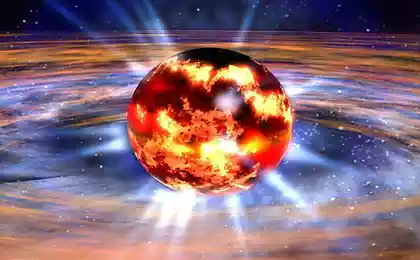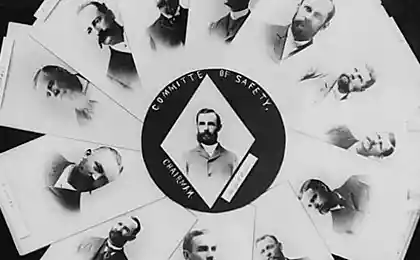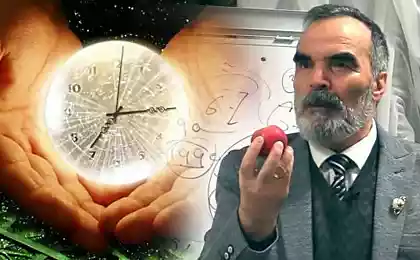305
Cto predicted American political scientist George Friedman o 21st century
The desire to look beyond the veil of time is inherent in people from ancient times. And against the background of recent events, even the most avid skeptics turned to the prophecies of Vanga and Nostradamus. Despite our doubts, we want to know when peace will come and what the future holds. These and other questions are answered in his book by the American political scientist George Friedman, whose predictions are distinguished by a deep analysis of world trends.
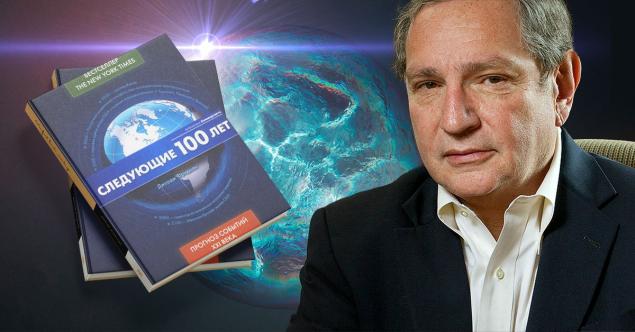
The book “The Next 100 Years: Forecast of the Events of the XXI Century” was published in 2009. A short time later, she entered the bestseller list of the New York Times. Friedman’s picture of the future is undoubtedly subjective. It also resembles a computer game scenario. But many of the events he described have already become our reality to some extent. Therefore, the warnings of the political scientist should be taken seriously.
By the end of the 2010s, the conflict between the US and Islamic fundamentalists will calm down. But Russia’s efforts to expand its sphere of influence will trigger a new Cold War between the United States and Russia. Friedman predicted that in the 2020s, Russia would try to regain control of the post-Soviet space. However, in his opinion, the attempt will be unsuccessful. Not least is the role of Central and Eastern European countries.
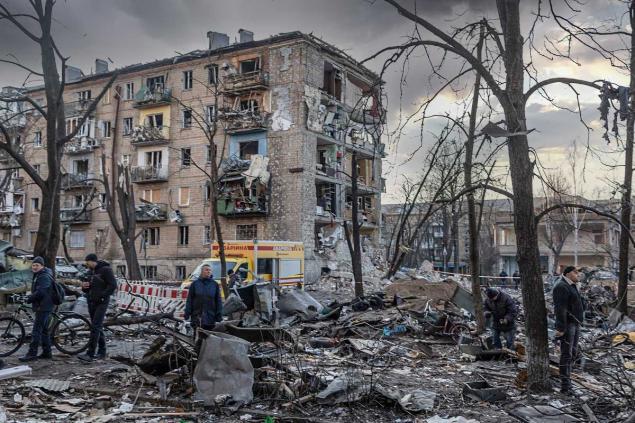
According to the calculations of the American political scientist, by the third decade of the XXI century, the Chinese economy will be the first in the world. This is a pretty accurate forecast, considering that experts expect something similar in 2028. Since China will rapidly develop its military potential, it will clash with other world superpowers. And on the geopolitical horizon, new stars will rise: Japan, Turkey, Poland and Mexico.
Not so long ago, many believed that the Second world war will be the last in the history of mankind. But looking at the ruined cities in Europe’s largest country, less and less people believe it. Friedman did not believe in a peaceful future and predicted the beginning of a new global conflict in the 2050s. The war will last about two years and will be very different from the wars of the XX century with the use of robots and space weapons systems.
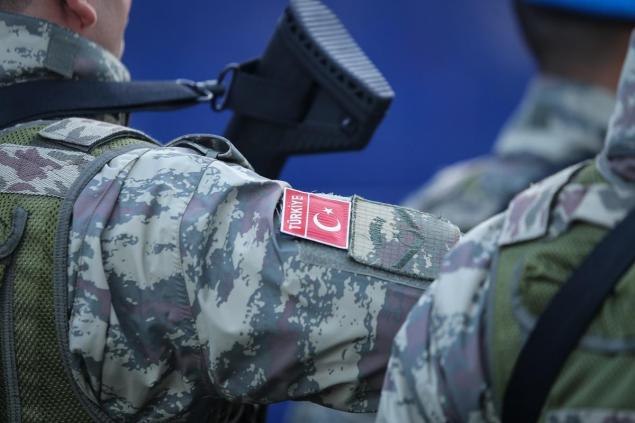
His book describes how after the end of the new Cold War, Turkey will greatly expand its military power. Its influence would extend to the former Soviet republics, the fragmented Arab world, and the entire Mediterranean. Japan will also change policy. Her interests will include the coastal zones of China, the Russian Far East and the Pacific Islands.
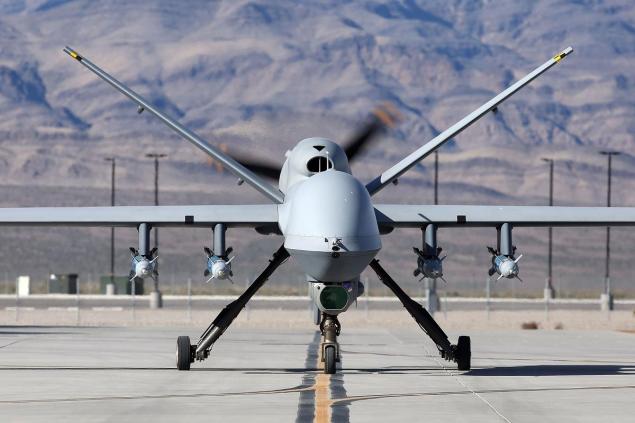
The competition between new and old world leaders will increase tensions. Sooner or later, the Turkish-Japanese alliance will strike at the United States and its allies. Further, according to Friedman, events can develop in two scenarios.
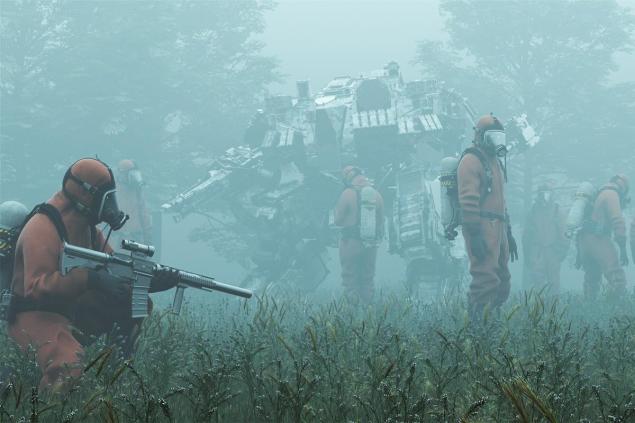
In the former, Turkey, Germany, and Japan will for some time be successful in the European theater. But as a result, the US, the UK and the countries of the “Polish bloc” will still win. However, this outcome the writer considers unlikely. In another scenario, the US will no longer be the only superpower. And eventually recognizes the hegemony of Turkey and Japan over Eurasia.
After the war in the United States will begin a new economic boom caused by increased defense spending. Poland will use the resources of neighboring countries to rebuild its economy and develop nuclear weapons. U.S., Chinese and Japanese military bases on the moon.

In the second half of the twenty-first century, we will be able to overcome dependence on hydrocarbons. They will be replaced by solar energy transmitted by satellites from orbit. New advances in robotics will cause an explosive increase in labor productivity. And medicine and genetic engineering will significantly increase life expectancy.
Friedman’s predictions promise us both the most dangerous and the most exciting page in the history of our world. Listening to his predictions or not is a personal matter. We truly believe that after the darkest night, the dawn will come. But to do this, you need to hold on, believe and hope.
Photo preview and article .

The book “The Next 100 Years: Forecast of the Events of the XXI Century” was published in 2009. A short time later, she entered the bestseller list of the New York Times. Friedman’s picture of the future is undoubtedly subjective. It also resembles a computer game scenario. But many of the events he described have already become our reality to some extent. Therefore, the warnings of the political scientist should be taken seriously.
By the end of the 2010s, the conflict between the US and Islamic fundamentalists will calm down. But Russia’s efforts to expand its sphere of influence will trigger a new Cold War between the United States and Russia. Friedman predicted that in the 2020s, Russia would try to regain control of the post-Soviet space. However, in his opinion, the attempt will be unsuccessful. Not least is the role of Central and Eastern European countries.

According to the calculations of the American political scientist, by the third decade of the XXI century, the Chinese economy will be the first in the world. This is a pretty accurate forecast, considering that experts expect something similar in 2028. Since China will rapidly develop its military potential, it will clash with other world superpowers. And on the geopolitical horizon, new stars will rise: Japan, Turkey, Poland and Mexico.
Not so long ago, many believed that the Second world war will be the last in the history of mankind. But looking at the ruined cities in Europe’s largest country, less and less people believe it. Friedman did not believe in a peaceful future and predicted the beginning of a new global conflict in the 2050s. The war will last about two years and will be very different from the wars of the XX century with the use of robots and space weapons systems.

His book describes how after the end of the new Cold War, Turkey will greatly expand its military power. Its influence would extend to the former Soviet republics, the fragmented Arab world, and the entire Mediterranean. Japan will also change policy. Her interests will include the coastal zones of China, the Russian Far East and the Pacific Islands.

The competition between new and old world leaders will increase tensions. Sooner or later, the Turkish-Japanese alliance will strike at the United States and its allies. Further, according to Friedman, events can develop in two scenarios.

In the former, Turkey, Germany, and Japan will for some time be successful in the European theater. But as a result, the US, the UK and the countries of the “Polish bloc” will still win. However, this outcome the writer considers unlikely. In another scenario, the US will no longer be the only superpower. And eventually recognizes the hegemony of Turkey and Japan over Eurasia.
After the war in the United States will begin a new economic boom caused by increased defense spending. Poland will use the resources of neighboring countries to rebuild its economy and develop nuclear weapons. U.S., Chinese and Japanese military bases on the moon.

In the second half of the twenty-first century, we will be able to overcome dependence on hydrocarbons. They will be replaced by solar energy transmitted by satellites from orbit. New advances in robotics will cause an explosive increase in labor productivity. And medicine and genetic engineering will significantly increase life expectancy.
Friedman’s predictions promise us both the most dangerous and the most exciting page in the history of our world. Listening to his predictions or not is a personal matter. We truly believe that after the darkest night, the dawn will come. But to do this, you need to hold on, believe and hope.
Photo preview and article .
Alena Kurilova explains how to survive in the terrible conditions of reality
Vera Lyon's predictions about the future of the world

















